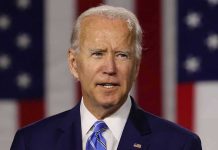
The U.S. State Department has once again extended the travel ban on North Korea for the eighth consecutive year, citing ongoing safety concerns for American citizens. This decision, rooted in the tragic death of Otto Warmbier in 2017, continues to prevent U.S. passport holders from traveling to North Korea. While the government maintains that this policy is crucial for protecting Americans, critics argue that it hampers diplomatic efforts and limits opportunities for humanitarian aid and cultural exchange.
Background and Context
The travel ban was initially imposed by President Trump in 2017 following the death of Otto Warmbier, an American student who was detained in North Korea and returned to the U.S. in a comatose state. Prior to the ban, thousands of U.S. nationals, including Korean Americans, traveled to North Korea annually, with hundreds of aid workers from humanitarian organizations also visiting the country.
Secretary of State Antony Blinken stated in a notice to be published in the Federal Register, “The Department of State has determined there continues to be serious risk to U.S. citizens and nationals of arrest and long-term detention constituting imminent danger to their physical safety.”
Key Developments
The State Department’s justification for renewing the ban emphasizes the ongoing risks of arrest and detention for Americans in North Korea. The recent case of Private Travis King, who crossed into North Korea from South Korea, has further highlighted the challenges in U.S.-North Korea communication and the potential dangers faced by Americans in the country.
#NorthKorea Travel Warning: @StateDept strongly warns U.S. citizens not to travel to North Korea. https://t.co/fsQBgFGu3P pic.twitter.com/dr3b0uMss0
— Travel – State Dept (@TravelGov) August 10, 2017
Impact on Diplomatic Relations
The continued ban has significant implications for U.S.-North Korea relations, particularly in terms of diplomacy and efforts to engage with the North Korean regime. Critics argue that the ban perpetuates isolation, reducing the potential for meaningful dialogue and negotiation. The recent resignation of Ambassador Jung Pak, the top U.S. diplomat for North Korea issues, has left a leadership void in this critical area of foreign policy.
“The Biden administration missed an opportunity to signal serious diplomatic engagement with North Korea by renewing the travel ban,” stated a foreign policy expert in a recent interview.
Conclusion
The renewal of the travel ban raises important questions about the future of U.S.-North Korea relations and whether this policy effectively protects Americans or hinders broader diplomatic goals. As North Korea announces plans to “revitalize international tourism” from “friendly” nations, the U.S. travel ban stands in stark contrast, potentially limiting opportunities for family reunions, people-to-people exchanges, and discussions on various issues like climate policies and disability rights.
As the ban remains in place until August 31, 2024, unless extended or rescinded, it continues to impact U.S. citizens with interests in North Korea, including humanitarian groups and families separated by the conflict. The ongoing debate surrounding this policy underscores the complex balance between national security concerns and the pursuit of diplomatic engagement in one of the world’s most challenging geopolitical relationships.
Sources
- The US has renewed draconian North Korea travel ban, yet again
- State Department renews ban on use of US passports for travel to North Korea
- Washington bans use of US passports to travel to North Korea for eighth year
- North Korea’s Power Structure
- State Department renews ban on use of U.S. passports for travel to North Korea
- State Department: U.S. to block Americans from traveling to North Korea














